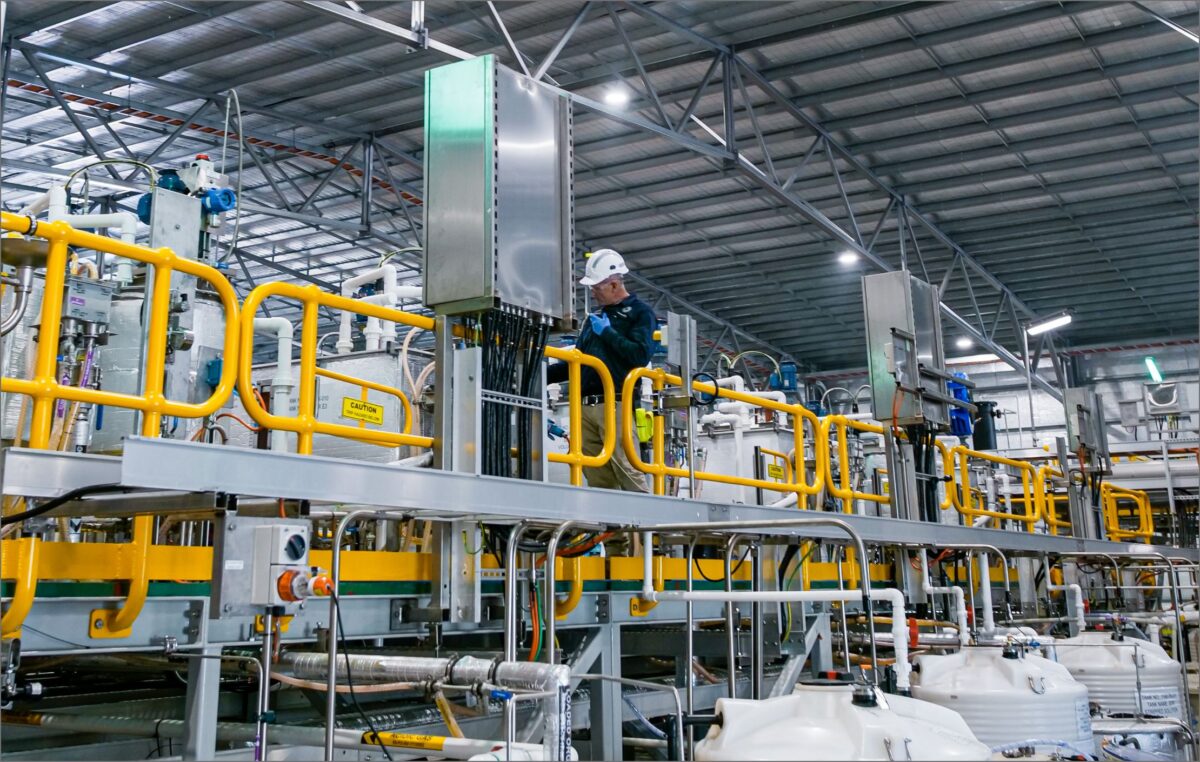Fires caused by lithium-ion batteries are expected to increase in the coming years as use of the energy storage solution continues to rise but Gladstone-based critical minerals company Alpha HPA said it has developed a high-purity aluminium nitrate that has the potential to deliver a safety breakthrough for the battery technology.
Alpha, a producer of chemicals used in lithium-ion batteries and semiconductors, said it has developed a solution that uses high-purity aluminium nitrate – a type of aluminium oxide at 99.99% purity – to coat the battery anode with a fine layer of aluminium oxide.
Alpha Managing Director Rimas Kairaitis said the process has demonstrated a 100% reduction in thermal runaway events, ensuring the safety of lithium-ion battery technology that has been the cause of an increasing number of fires.
Fire and Rescue New South Wales (FRNSW) said lithium batteries have caused at least 63 fires in the state already this year. Last year, the batteries caused 272 fires.
“At its core, the lithium-ion battery operates on controlled oxidation reactions,” Kairaitis said. “However, under certain conditions such as trauma or using lower quality materials, these reactions can become rapid and uncontrolled, leading to thermal runaway, otherwise known as battery fires.”
Kairaitis said Alpha’s solution relies upon its Smart SX solvent extraction and HPA refining technology to produce 99.99% pure aluminium nitrate and builds upon a process developed by Chinese battery anode manufacturer BTR New Materials. The process involves using that high-purity aluminium nitrate to coat the battery anode with a layer of aluminium oxide.
“Until now, commercialisation of this technology has been hindered by the lack of high-purity aluminium nitrate,” Kairaitis said.
“Using Alpha’s proven Smart SX technology we have overcome this barrier, enabling the production of the world’s purest aluminium nitrate at commercial volumes and competitive industrial pricing.”
Alpha said it has undertaken extensive testing and engagement with the lithium-ion battery manufacturing sector and is in active discussions with 13 anode manufacturers and developers, with the aim of commercialising the technology and ushering in a new era of safer batteries.
The company, which plans to produce 10,000 tonnes of HPA equivalent annually at its Gladstone facility, said it has the flexibility to either provide the aluminium nitrate directly to customers or apply the coating directly.
This content is protected by copyright and may not be reused. If you want to cooperate with us and would like to reuse some of our content, please contact: editors@pv-magazine.com.









By submitting this form you agree to pv magazine using your data for the purposes of publishing your comment.
Your personal data will only be disclosed or otherwise transmitted to third parties for the purposes of spam filtering or if this is necessary for technical maintenance of the website. Any other transfer to third parties will not take place unless this is justified on the basis of applicable data protection regulations or if pv magazine is legally obliged to do so.
You may revoke this consent at any time with effect for the future, in which case your personal data will be deleted immediately. Otherwise, your data will be deleted if pv magazine has processed your request or the purpose of data storage is fulfilled.
Further information on data privacy can be found in our Data Protection Policy.